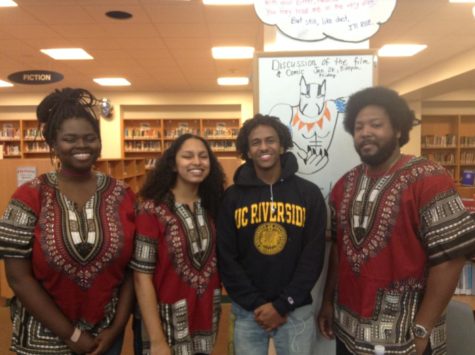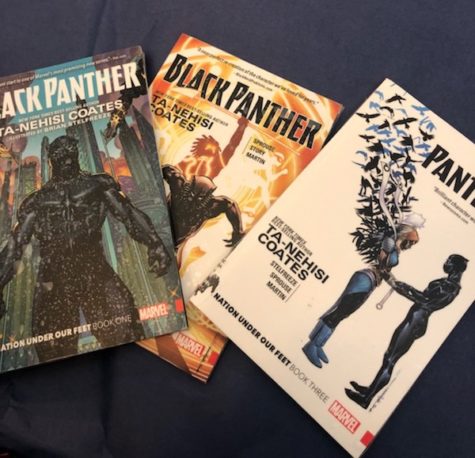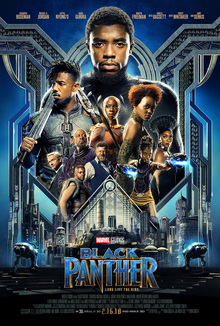A Talk About Black Panther
January 26, 2018
On January 26, four Black Student Union members from UCR came to Eleanor Roosevelt to discuss the movie and its impact on society. The meeting took place after school in the library, and it began with the BSU students discussing why they believe Black Panther is important, and then giving audience members an opportunity to share their thoughts and beliefs.
The conversation branched into politics, and everyone was able to share their thoughts on things such as; whether or not Black History Month should be referred to as American History Month, our current president of the United States, and why representation is important to media. One audience member stated, “Being able to

see myself in television characters, not only makes me feel like I am important, but also that there are other black women that I can look up to.”
With the upcoming release of Marvel’s new film, “Black Panther”, on Feb. 16, many people are highly anticipating the movie. The majority of the cast being black has had many fans praising the movie for its diversity in a superhero film, a fairly new concept. Marvel has been dominating the superhero field, and Black Panther seems to be an expected box-office hit.
Unlike their other works, “Black Panther” represents something deeper, other than just themes of sacrifice, or love. To the black people, it represents the beginning of Hollywood deviating from the ‘norm’, and accepting diverse concepts into the films they create.

When aksed about what the event was about overall, a UCR student and BSU member stated that, “Even though we’re talking about Black Panther and comic books and everything, in order for us to bring about the future that we desired, we’re all going to have to learn to assume responsibility and become the superheros that will bring about the future that we want.”
As Black History Month approaches, it’s important to be aware of the history behind everything, and acknowledge the struggle of being a minority is real. Films that show African-Americans, and black people, that they are more than the sterotypes that plauge them, are vital on encouraging the youths of today.


